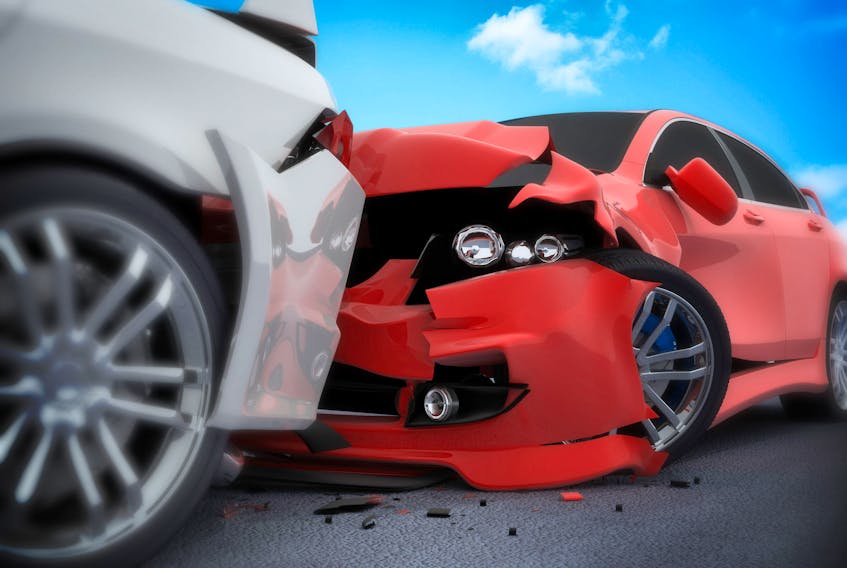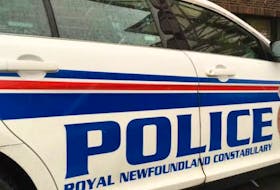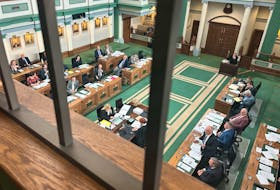When Amanda Dean presented the Insurance Bureau of Canada’s (IBC) report during automobile insurance review hearings Tuesday in St. John’s, she drove straight into the main issues.
“Let me address the elephant in the room,” Dean said. “That’s the falsehood circulating around the province that over the past few years insurance companies have posted hundreds of millions of dollars in profits. Insurers are not making money on auto insurance in Newfoundland and Labrador. They are losing money (because costs are escalating).
“The (Oliver Wyman) study concluded that even though higher costs have led to higher premiums and limited availability, insurers still need to charge another 17 per cent on top of 2017 premiums just to be viable.”
Dean said the cost pressures driving the instability in the province’s insurance system are the “ever rising costs of settling bodily injury claims.”
“Between accident years 2011 and 2016 the average cost jumped from $55,000 to nearly $79,000,” she said. “The highest in Atlantic Canada.”
Lawyers representing accident victims, the consumer advocate and others had a number of questions for Dean and IBC policy adviser Ryan Stein, challenging them on the IBC’s suggested reforms for Newfoundland and Labrador’s auto insurance system.
Jerome Kennedy, a lawyer representing the Campaign to Protect Accident Victims, said that in 2016 in the province, the superintendent of insurance indicated automobile insurers made $100 million in profit.
“That is not correct,” Dean replied.
Kennedy also suggested that in the first quarter of 2017, insurance companies across Canada made $986 million in investment profit.
“It would only be the banks that would make more money in Canada,” he said.
“I do not follow the profitability of the banks,” Dean replied. “And I do not have a source for that number.”
The Public Utilities Board (PUB) is holding public hearings on a review of automobile insurance in the province, including the reasons behind increasing claims costs for private passenger vehicles and taxi operators, and options to reduce these costs.
The board was asked by the provincial government to examine the impact on rates and implications for claimants of introducing a monetary cap on claims for minor injuries or continuing with the current deductible of $2,500, or increasing the deductible.
Dean said reforms the IBC is proposing to help stabilize the auto insurance industry in the province include replacing the existing $2,500 deductible with a $5,000 compensation cap on minor injuries. Compensation caps, she said, have been proven to contain bodily injury claim costs and keep premiums stable.
“Our proposed package of reforms is designed to meet three objectives,” she said. “Those objectives are to stabilize premiums by reducing and stabilizing bodily injury claims costs, improve health outcomes for people injured in collisions by providing access to treatment based on current medical evidence and by having appropriate accident benefit levels, and making it easier for people to repair and replace their damaged vehicles.”
Consumer Advocate Dennis Browne said reports show that in another jurisdiction where a minor-injuries compensation cap was implemented, the rate of return went up dramatically for insurance companies.
He asked if there was any formula or remedy derived in other jurisdictions to ensure that consumer premiums went down commensurately with increases the insurance industry received after the cap was implemented.
Stein said he didn’t think there was a formula to ensure that, but noted insurance companies would have more experience “in this new environment” and be able to predict what the next year was likely going to be, and lower premiums accordingly.
Another mammoth issue in the room raised while Dean and Stein were presenting was what Kennedy called an “attack on lawyers.” He said the IBC report suggests that too many accident victims are represented by lawyers.
“(In the report) it says ‘the ability to take an injury that’s expected to heal in a few days, weeks or months and to turn it into tens of thousands of dollars in cash is why 82 per cent of injury claims involve personal injury lawyers.’ What do you mean by that statement?” Kennedy asked.
“We saw in the closed claims study that was prepared by Oliver Wyman, 82 per cent of minor injury claims involved legal counsel,” Dean replied. “That is a high amount when we compare that to neighbouring provinces.”
“Do you agree with me, Ms. Dean, that one of the most basic premises of our legal system in Canada is that people have the right to be represented by lawyers and the right to access justice?” Kennedy asked.
“Absolutely, but also insurance is an indemnity,” she said. “One of the basic principles of indemnity is placing you back to where you were prior to the incident, and what we are stressing … is the care and getting individuals in this province better, quicker and back to their regular lives.”
“So lawyers prevent that from happening, do they?” Kennedy asked.
“That’s not what we’re saying,” Dean said. “It’s just that the process could be a lot quicker, to get individuals better quicker. Again, we are all working within the constraints of the current legislation and regulation.”
After referring to further sections of the report, Kennedy asked, “Are you alleging here that personal injury lawyers engage in dishonest and unethical practices?”
“Not referring to any such thing, I am referring to the fact that there are certainly larger amounts paid for non-pecuniary damages in this province over and above that which ensures that the victims of motor vehicle collisions are healing, received the treatment that they require and incur any out-of-pocket expenses for lost wages and so on,” Dean said.
Kennedy asked if the IBC would prefer a system where an accident victim deals directly with insurance adjusters without the help of a lawyer.
“The IBC would prefer a system where an accident victim negotiates directly with an insurance adjuster and gets $2,500 as opposed to a case where a lawyer is involved and they get $30,000, is that the system that you’re proposing?” Kennedy asked.
“There should be a system where those who are injured heal and receive a reasonable amount of compensation,” Dean said.









